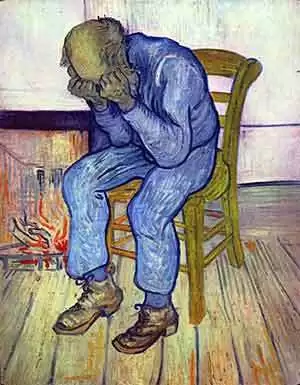
Celiac.com 08/20/2020 - I am afraid that the following article might not make me very popular—if I had any popularity remaining after my last one! If you saw “The Paleo Template” here on these pages, you’ll recall that its ideas rest upon the theory that humans are healthiest when eating the types and classes of foods we’ve been consuming for the overwhelming majority of the roughly two and one half million years we’ve been on this earth. It wasn’t until very, very recently, in the grand scheme, that we’ve been consuming the products of agriculture: wheat; dairy; beans; and any foods that required more than the bare minimum of processing to make them edible. To greater or lesser degrees consuming these new foods isn’t good for us. As paleo nutritionist Ray Audette put it in his book Neanderthin (St. Martin’s Press, 2000), historically we’ve only consumed those items we could get if we were “naked with a sharp stick”: meat; certain vegetables; low glycemic; high fiber fruits; and certain nuts: hunter gatherer foods. Modern diseases are reactions to those foods that have only recently been added to our diets, gluten-containing foods being the most immediately obvious to this publication’s readership.
Well, here’s one modern food that may deserve the same level of scrutiny as gluten-containing grains, even given its worship by what appears to be a totality of today’s nutritionists: our beloved chocolate.
Celiac.com Sponsor (A12):
Now wait a minute. What kind of sadist would want to find fault with this giver of pleasure and apparent health panacea? Well, before we go there, let’s step back a moment to the naked with a sharp stick idea. Would chocolate, cocoa, cacao—or anything remotely similar—have been consumed by our paleo ancestors? No. Even in its purest commercial forms, it does require quite a deal of processing before it is edible: drying, fermenting, roasting, powdering, etc. Raw cacao proponents would disagree with this and, even though it is a tiny, tiny fraction of the market, there are raw, unpeeled, whole beans available for purchase. But let me get to a more important point. Chocolate, cocoa, cacao, in any form, was apparently discovered by native South Americans around 3000 years ago and didn’t make its way into the European diet until the 16th century, with widespread usage delayed until the Industrial Age a little more than 100 years ago. So if you’re a native of the tropical rainforests of South America, you’ve had a very short period of time for adaptation. If you don’t fit that description, you’ve had effectively zero time to adapt to this food.
So what if it’s new? The so what is this: new foods—gluten-containing grains included—are almost always the cause of modern disease and as such deserve a closer look because of their novelty. Maybe chocolate’s ok to eat, maybe not.
As mentioned above, it’s not “maybe” in current nutritional culture. Chocolate is lauded as the perfect health food. A simple search on Medscape.com yields more than 380 studies touting its benefits: they say it reduces blood pressure, decreases risk for pregnancy-induced hypertension, improves vasodilation, reduces platelet adhesion, reduces cholesterol, improves post-exercise workout recovery, improves insulin sensitivity, protects smokers’ hearts, improves endothelial function, even helps with diarrhea. And to top it off, it’s apparently a wonderful aphrodisiac. Turn on your television or radio, open a newspaper or log onto an Internet site and you’re sure to see a thousand more benefits claimed. We want this stuff to be good for us.
Before we go on, I want to take another step back, change the subject entirely again, and talk about depression. Wikipedia defines it as “a mental disorder characterized by a pervasive low mood and loss of interest or pleasure in usual activities.” Ron Hoggan points out in his excellent article “Food Allergies and Depression,” that this condition is a “very common symptom of celiac disease,” and by extension gluten intolerance.
Why did I suddenly change the subject to depression? Here’s why: a new study out of Australia (Gordon Parker, Isabella Parker, Heather Brotchie, Mood state effects of chocolate, Journal of Affective Disorders 92, 2006, 149-159) shows that chocolate may actually cause and/or deepen depression. The study shows a link between a worsening of depressive symptoms and chocolate consumption for those “emotional eaters” who are attempting to self-medicate. As the authors put it in the conclusion of the study:
- "When taken in response to a dysphoric state as an 'emotional eating' strategy it may provide some transient ”comforting” role but it is more likely to prolong rather than abort the dysphoric mood. It is not, as some would claim, an antidepressant."
Now we already know that celiacs and the gluten intolerant are very prone to depression. We now know that chocolate may deepen depression. But, since there’s not a whole lot of data out there linking mood, chocolate, and gluten intolerance, I decided to do a personal experiment. Of course, the data is anecdotal, but I think informative and revealing.
I regularly eat a diet free of gluten, diary, legumes, and artificial fats and had been very faithful to the regimen for a few months. For the purpose of the experiment I consumed one bar of Green & Blacks 70% Cocoa Content Dark.
I quickly felt contentment, even mild euphoria. I was able to concentrate for quite a long time and actually did quite a bit of research for this article. But that evening I experienced a shallow, dream-filled sleep before awaking in a fog early the next morning. I had some gas, bloating, and was itchy with what I’ll call proto-hives. Within a few hours I had gained almost a pound of water weight and felt as if I had a hangover, mild depression. And, boy, was I irritable! I also noted mild shakes and muscular tension and some knots.
Again, one guy = anecdotal evidence. But this doesn’t sound at all like a food that’s good for you! As a fellow gluten intolerant, I’d like to challenge you to the same experiment. Pick up a copy of a book I recommended in my last article, Loren Cordain’s The Paleo Diet (Wiley, 2002), and follow its dietary regimen for three weeks to eliminate from your system whatever non-paleo foods you might have floating around in your body. Then try a bar of quality dark chocolate and send me an email to tell me how it made you feel.
Truth is, my reaction surprised me. But should it have? Chocolate is composed of foreign substances only very recently introduced into the human diet and apparently causes an immune system reaction similar to that caused by gluten. And, like the psychoactive effects felt when one ingests gluten, the initial euphoria and increased attentiveness caused by chocolate wears off relatively quickly and, for me at least (and I suspect for quite a few of the gluten intolerant) serious after effects remain.
Maybe this isn’t the miracle food it’s purported to be.








Recommended Comments
Create an account or sign in to comment
You need to be a member in order to leave a comment
Create an account
Sign up for a new account in our community. It's easy!
Register a new accountSign in
Already have an account? Sign in here.
Sign In Now